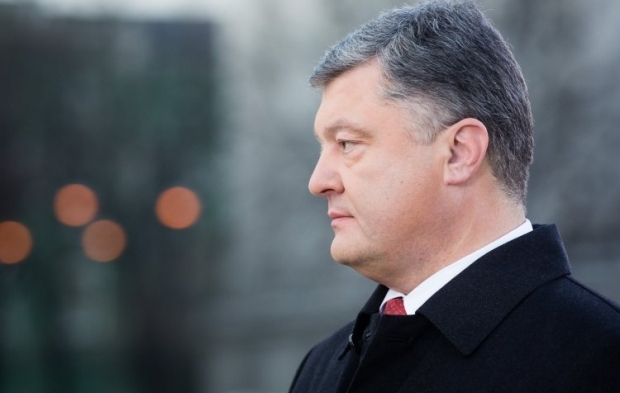
"I made up my mind – I would go there on the day of the pseudo-voting by the Supreme Council of Crimea. I secured authority from the then Chairman of the Verkhovna Rada and [simultaneously] acting President [Oleksandr Turchynov]. My agenda included negotiations with Crimean Supreme Council members, the presidium, its chairman – I intended to offer all they had been seeking. At that time, we were ready to discuss every detail as for the legislation of Ukraine, the Crimean Constitution and ensure necessary safeguards of the people's interests, even in their understanding," Poroshenko said.
At the airport, he saw troops standing in a line and blocking the airport's exit. They asked Poroshenko not to go to the Crimean Supreme Council's building and proposed holding a meeting at a certain "bath and laundry complex" outside the city of Simferopol. Poroshenko said he refused and went to the Council's building.
"What I saw: the Council's building was blocked and locked while the 'referendum' was being held. There was no civilian, there was a cordon of Russian troops. Under international law, it was an absolutely clear act of annexation by another state's armed forces. And more – those were not the military of the Black Sea Fleet. They were special forces, trained for such tasks, brought from the [Russian] continent," Poroshenko said.
Пам'ятаю, як 28 лютого 2014 року я приїхав в український Крим з твердим наміром змінити ситуацію і з переконанням, що на...
Опубликовано Петро Порошенко 28 февраля 2016 г.
"My plans haven't changed since then. Crimea is Ukraine. I have done and will do my best to ensure the de-occupation of the peninsula," Poroshenko wrote on Facebook on Sunday, February 28, 2016.
UNIAN's memo. Russia in March 2014 annexed Ukrainian-controlled Crimea, having first brought troops on the peninsula and then organized a fake referendum.
The self-proclaimed Crimean authorities claimed that 96.77% of those Crimean residents who came to the "referendum," had voted for Crimea's accession to Russia.
On March 18, 2014, a so-called treaty on including Crimea and the city of Sevastopol in Russia was signed in the Kremlin.
The Western world did not recognize the annexation and introduced economic sanctions against Russia and Crimea.

